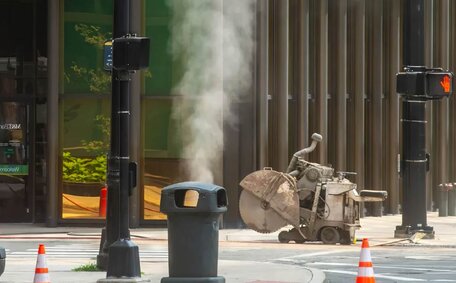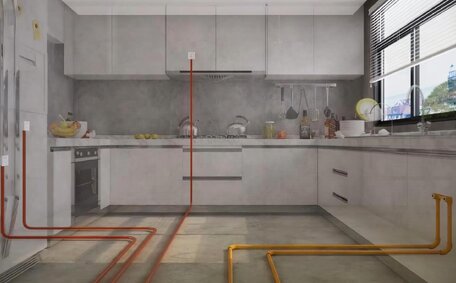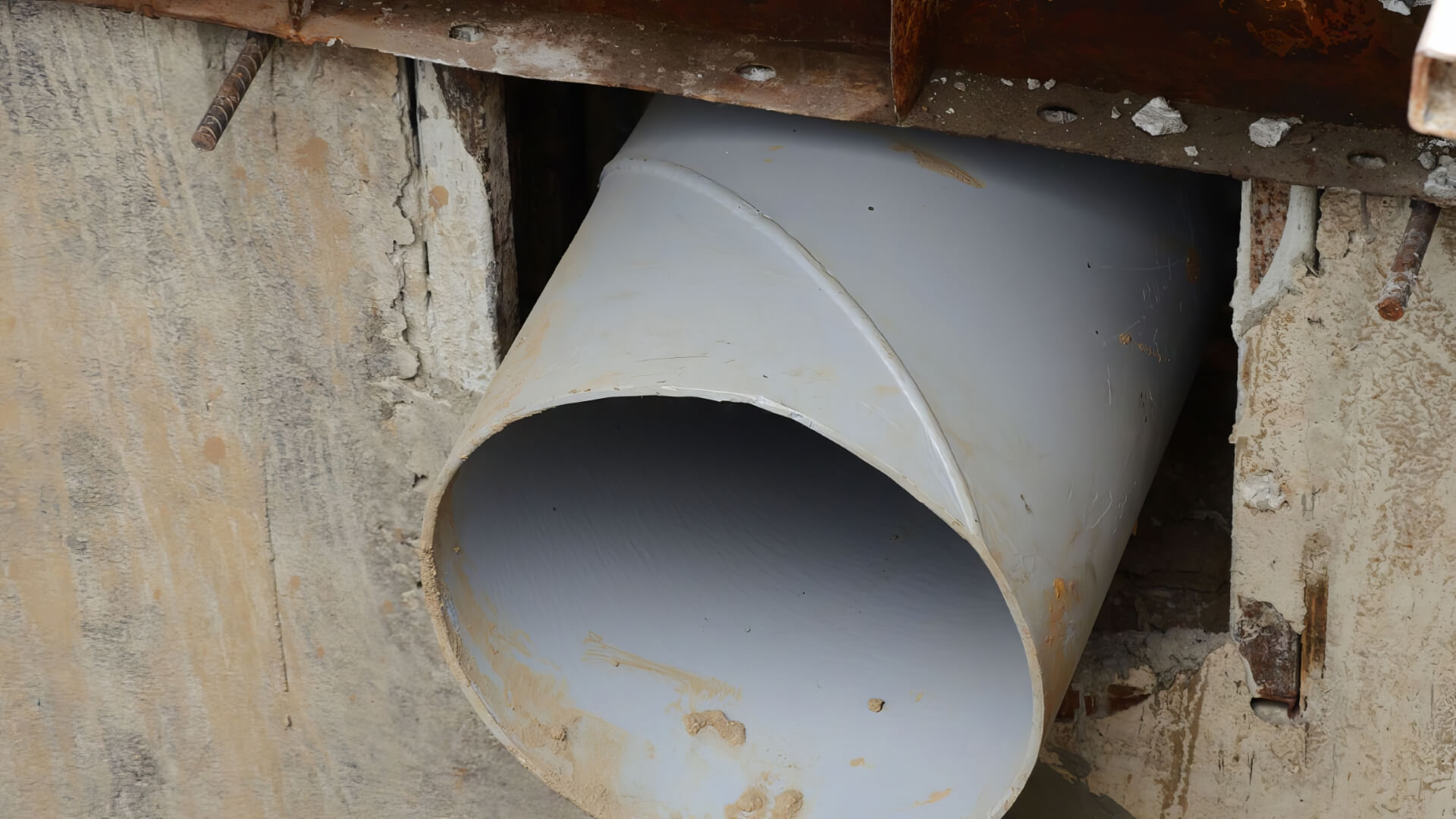Introduction to Blocked Drains
A blocked drain is when a pipe becomes clogged with debris, stopping water and waste from flowing through properly. This is a common plumbing issue that can happen in any home.
Causes of blocked drains include:
- Accumulated hair, grease, food scraps and other debris
- Tree roots growing into pipes
- Collapsed or misaligned pipes
Blocked drains can lead to a number of problems, such as:
- Unpleasant odours from sewage backing up
- Leaks and water damage if pipes crack under pressure
- Flooding inside the home
- Health hazards if raw sewage overflows
It’s important to have blocked drains fixed promptly by a professional plumber to avoid damage and health risks. Preventative steps like installing drain screens, avoiding pouring grease down sinks, and getting pipes regularly maintained can help avoid blockages.
Health Risks of Blocked Drains
Blocked drains can pose health risks due to the breeding of bacteria in stagnant water. Foul odours are one tell-tale sign that bacteria are accumulating in a blocked drain. Certain bacteria like Salmonella and E. coli can be found in stagnant drain water and contaminate the home if sewage backs up.
One particularly concerning bacteria sometimes found in blocked drains is Legionella. It thrives in warm, stagnant water environments and can lead to Legionnaires’ disease if inhaled via water droplets from contaminated pipes or drains. Symptoms include fever, chills, coughing and muscle aches.
Other potential health hazards from blocked drains include nausea, infections and rashes from direct contact with contaminants. Gas buildup can also occur, creating a risk of explosion.
While the risks are real, it’s important not to panic.
The solution is to call a professional plumber as soon as a blockage is suspected. They can clear the drainage system and ensure any health dangers are addressed. Maintaining drains by avoiding pouring fats or harsh chemicals down them can also help minimise risks.
Respiratory Issues
One of the biggest health hazards posed by blocked drains is the potential release of harmful gases, especially hydrogen sulphide. This toxic gas is created by the bacteria thriving in stagnant water. At high concentrations, it can irritate the eyes and respiratory tract, causing coughing, headaches, nausea and difficulty breathing.
Low, long-term exposure to hydrogen sulphide may also cause health effects like headaches, eye irritations, chronic coughing and shortness of breath. Asthma sufferers are especially vulnerable. The gas has a strong rotten egg odour at low concentrations, but this smell can fatigue the sense of smell so gas buildup can go unnoticed.
Methane gas created by organic matter breakdown in blocked drains can also accumulate and pose an asphyxiation and explosion risk. Plus, mould growth encouraged by moisture and warmth from blocked drains can release spores that trigger allergic reactions and asthma in susceptible individuals.
The best way to avoid respiratory and other health issues is to prevent drain blockages in the first place. But if you suspect a blockage, call a plumber immediately to clear it before dangerous gas levels and mould growth can occur. Proper plumbing maintenance protects your home and your family’s health.
Illnesses from Bacteria and Viruses
The stagnant water in a blocked drain provides the perfect breeding ground for harmful bacteria and viruses. As they multiply, they can lead to a number of illnesses if there is contact with contaminated water.
One of the most serious is Legionnaires’ disease, which comes from Legionella bacteria. It causes pneumonia-like symptoms and can be fatal in some cases. Other common bacteria-related illnesses that can arise from blocked drains include salmonella, cholera, typhoid, dysentery, hepatitis A and gastroenteritis.
These diseases occur when bacteria enter the body through ingesting or inhaling contaminated droplets. Blocked drain water can also irritate skin and eyes. Viruses like norovirus and rotavirus can be spread through contact with sewage overflow.
The accumulation of bacteria over time poses the biggest risk. Regular drain maintenance and prompt treatment of blockages reduces the chances of health issues. But if you ever suspect a blockage, call a plumber right away to prevent germs from multiplying.
Pests Attracted to Standing Water
Standing water is a magnet for pests. Mosquitoes in particular need stagnant water to breed and lay eggs. A blocked drain creates an ideal environment for them.
Mosquito-borne diseases like Ross River Fever, Barmah Forest Virus and Murray Valley Encephalitis are risks in stagnant water.
Rodents are also attracted by standing water and can enter the home through blocked drains. They contaminate surfaces with urine and faeces, spreading bacteria like salmonella. Rodents also chew through wood and wiring, causing fires and property damage.
Other pests like cockroaches and spiders may also be drawn in. The stench from blocked drains can attract flies too. Getting drains professionally unclogged removes these pest hazards and protects your family’s health.
Preventing Blocked Drains
The best way to avoid issues with blocked drains is to stop them from occurring in the first place. Here are some tips to help prevent clogs:
- Use drain screens over sinks and tubs to catch hair and debris before they go down the drain.
- Avoid pouring fats, oils and grease down the sink - these can build up and cause blockages.
- Only flush toilet paper and human waste down toilets - other items can get stuck.
- Don’t use the toilet or drain as a waste basket.
- Have your drains professionally cleaned once a year to remove built-up gunk.
- Use enzyme drain cleaners monthly to break down organic matter.
- Pour 1/2 cup baking soda followed by 1/2 cup vinegar down sinks and tubs weekly to deodorise and keep drains clear.
- Fix any leaky plumbing fixtures which can loosen debris and cause clogs.
Blocked drains are frustrating and unhealthy. But with some simple preventative measures, you can avoid problems and keep your plumbing running smoothly.
Avoid Pouring Grease Down the Drain
Pouring oils, fats and grease down the kitchen sink is one of the most common causes of blocked drains. As grease goes down the drain, it sticks to pipe walls and hardens over time. This narrows pipes and makes it easier for food scraps and other debris to get caught, eventually blocking the flow entirely.
Grease and fat buildup is the leading cause of sewer main clogs. Allowing grease to gradually build up also puts strain on pipes.
Just a small amount of grease can start this process. Cracks can form, leading to leaks and water damage.
To avoid pouring grease down drains:
- Pour cooled grease and oil into a container such as an empty jar or coffee tin and dispose of it in the garbage.
- Use paper towels to wipe greasy pans before washing.
- Scrape food scraps into the bin rather than rinsing down plates.
- Use a sink strainer to catch any food particles when washing up.
Making grease disposal a habit will help keep drains clear and prevent blockages, leaks and damage. Your plumbing will thank you!
Use Drain Screens and Strainers
Using drain screens and strainers is an easy way to prevent debris from going down your drains and causing a clog. Drain screens fit over sink, tub and shower drains to catch hair, food scraps, and other particles before they can wash down.
Strainers are also useful above kitchen sinks to catch food waste when washing dishes. They allow water to pass through while trapping scraps, preventing them from building up in pipes.
Screens and strainers should be cleaned off regularly and kept in place at all times. Proper use will significantly reduce the chances of a blocked drain occurring. Installing them is a simple, inexpensive way to protect your plumbing and avoid health hazards.
For sinks, there are many plastic and metal screens available that sit in the drain opening. For tubs and showers, nylon hair catchers are an affordable option that suction to the drain and can be rinsed off when needed.
Using drain screens and strainers should be part of your home maintenance routine. Combined with avoiding putting grease down drains and having pipes cleaned periodically, they offer an easy way to prevent expensive plumbing disasters.
Have Drains Professionally Cleaned
Having your drains professionally cleaned and maintained is one of the best ways to prevent blocked drains and avoid potential health hazards.
A drain service will use specialised equipment like hydro-jetting and rodding machines to thoroughly clean out your pipes. They can remove years of built-up gunk, grease, hair and other debris.
Technicians can also inspect your drains and identify any underlying issues that may lead to blockages down the track, such as root intrusion, cracks or misalignments. These can then be repaired.
Professional drain cleaning helps optimise water flow and pipe capacity. It also reduces the chances of leaks, flooding, foul odours and vermin infestations in your home.
Most experts recommend cleaning sinks annually, kitchen drains biannually, and main sewer lines every 3-5 years. Catching problems early prevents costly emergency plumbing callouts.
Investing in regular professional drain maintenance is money well spent. It keeps your plumbing and home hygienic while avoiding the frustrations and dangers of blocked drains.
Be Careful What You Flush
Many common household items can clog drains and sewers if flushed. Avoid flushing the following:
- Baby wipes, feminine hygiene products, condoms, dental floss
- Paper towels, tissues, cotton balls
- Cigarette butts
- Hair
- Grease, fats or oils
- Food scraps or solids
- Sand, lint, dust or powder
- Aquarium gravel or kitty litter
- Medications
- Clothing, rags or cloths
Only human waste and toilet paper should go down the toilet. Flushing improper items down drains leads to blocked pipes, sewer backups, and plumbing emergencies. Being mindful of what goes down your drains prevents problems.
All other items should go in the bin.
Call a Professional if a Blockage Occurs
If you suspect a drain blockage has occurred in your home, it’s important to call a professional plumber right away. Trying to unclog the blockage yourself with harsh chemicals or improper tools can often make the problem worse and cause further damage.
A licenced plumber like Rouse Hill Plumbing has the specialised equipment and expertise to diagnose the cause of the blockage and safely clear it. We can use high-powered hydrojetting to flush out the drain and eliminate any built-up gunk, debris or obstructions.
Acting quickly to contact a plumber prevents festering bacteria, gas build-ups and water leakage that can occur with blockages. It also minimises structural damage from pipe corrosion and pressure. Trying to delay plumbing repairs will only increase costs in the long run.
At the first sign of drain issues like gurgling noises, bad odours, backed up water or slow drainage, call our team for urgent assistance. We offer 24/7 emergency plumbing services when you need it most. Don’t let a minor clog turn into a hazardous and expensive problem down the track.
Signs of a Blockage
Some clear signs that indicate a potential drain blockage in your home include:
- Water draining slowly or not at all
- Gurgling sounds from drains
- Pooling water around drains or toilets
- Foul sewage odours
- Toilets overflowing when flushed
- Sinks backing up with water
- Presence of roaches, flies or mosquitoes
Catching a blockage early allows for quicker, less expensive repairs. Don’t ignore these warning signs. We can diagnose the problem and get your drains flowing freely again.
Call a professional plumber like Rouse Hill Plumbing right away if you notice any of these issues.
Health and Safety Risks
Attempting to unclog a blocked drain without proper training and equipment can present health and safety hazards. Harsh chemical drain cleaners can cause burns or give off toxic fumes if used incorrectly. Makeshift devices like plungers or wire snakes can damage pipes, release sewage and cause injuries.
There is also a risk of electric shock from touching exposed wiring while handling drains. Crawling under sinks or into confined areas to access pipes raises the chance of cuts, bruises or head injuries. Proper protective gear like goggles, gloves and masks should always be worn.
Most importantly, amateurs lack the expertise to truly diagnose and resolve a blockage. This can result in sewage backups, water damage, gas leaks and festering germs if not handled properly. For safe, effective drain clearing, it’s best to call in professional plumbers.
Preventing Further Damage
Once a drain becomes blocked, it’s crucial to act quickly to prevent further issues. A minor clog can rapidly turn into a major problem if left unchecked.
Continued use of a blocked drain will increase water pressure, which can worsen pipe corrosion, cause cracks, and lead to leaks or bursts. Sewage buildup also raises the risk of overflow into your home, creating health hazards from bacteria, mould and contamination.
Calling Rouse Hill Plumbing at the first sign of trouble allows our licenced technicians to safely clear blockages before any damage or flooding can occur. We use state-of-the-art hydrojetting equipment for thorough drain cleaning.
Regular maintenance is key for preventing clogs in the first place. Let us inspect your drains annually and perform professional cleaning to optimise flow. Investing in prevention reduces emergency repairs.
Don’t let a minor drain issue put your home and family’s health at risk. Contact our team today to schedule an inspection or unclog existing blockages. We’re available 24/7 to protect your plumbing and prevent hazardous backups.






